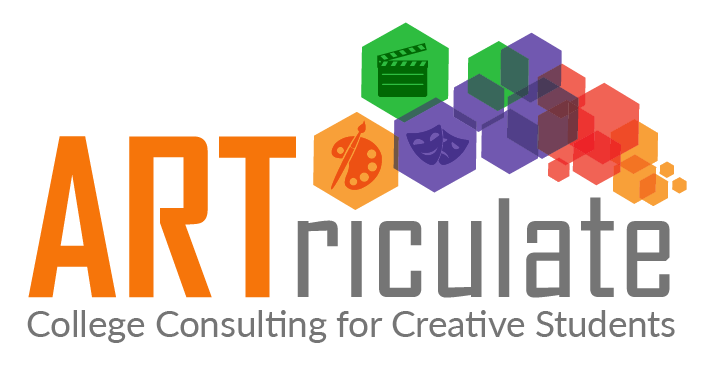Be a great college research sleuth
Regardless of where you are in the college application timeline, visiting colleges is an integral part of your journey. I always encourage high school students, even as early as 9th grade, to visit campuses when they have the opportunity. Visiting allows you to "feel" the school and experience what studying and living on campus will be like. With Covid however, even if you can take a campus tour, they may be limited, often with no view of the classrooms, studios, theaters, or dorms and probably with fewer students around to get a feel for the campus energy. Luckily, colleges have really improved their websites, most are now full of detailed information you can dig deep into their course catalogs, club offerings, professor research, performances and artwork, and social media postings.
First, look at Academics (make sure you focus on undergraduate academics if you're researching a university), here you can read about majors, minors, concentrations and even certificates. If you're researching a creative program read about their foundation year and required core classes. Many websites show course descriptions in addition to course titles. How many electives outsides your major might you be allowed? What are the general education (GenEd) requirements and how do you fulfill them? Are you allowed to minor? Are there any semesters abroad or at another campus? Pay special attention to senior projects and research, do you like the student work? If you're a performing artist but not intending to major in performing arts, can you participate in productions?
Next, look at the Campus, probably easiest with a YouTube tour. Do they have the facilities, studios, practice rooms, and equipment and is it available for undergraduates to use? Do they have a student center? If you like to workout can non athletic teams easily use the gym or is it heavily restricted for athletic teams? What are the dining options, and if you have a particular diet, is it easily available on campus? What housing is offered, not only to freshman, but to upperclassmen as well. Is it a big sprawling campus or a small compact campus? Is it in a big city or a small suburban town? If you like nature, is there enough accessible green space? I always look at a campus with google maps to see how and where it fits into its surroundings.
Now research the social and cultural aspects of the school. You can start with reading about campus clubs, greek life, LGBTQ+, diversity, and other special interests and activities you'd like to have on campus. Instagram is often a great site to use, not just the official school site, but dig a bit and find professors, other students, departments, sports teams, and clubs. It's very likely that they all have Instagram and their posts can be informative. Find and read online newspapers, both the "official" papers, and the "underground" papers, these are great sources of information as you'll learn the hot topics on campus, how the administration handles them, and how the students react to them.
So, it's going to take some keystrokes to do your research. One caveat with online research using crowdsourced sites such as YouTube and Instagram, make sure to check the date of the posting, a pre-covid post may not be as useful and accurate as a post from 2020 and more recent.
